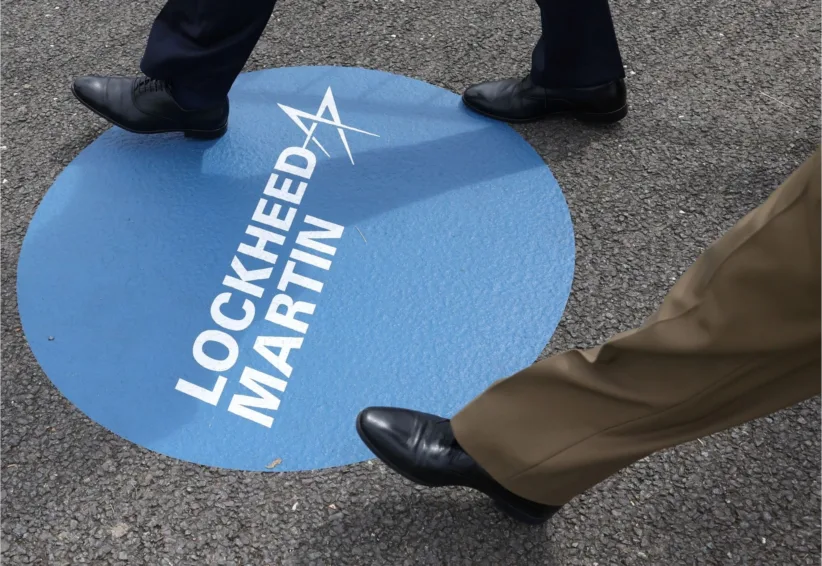The prohibition on transfer
As was the case the previous year, in 2024 one state not party—the United States—engaged in conduct that was not compatible with the Treaty on the Prohibition of Nuclear Weapons’ (TPNW) prohibition on transfer of nuclear weapons, by virtue of its export of the key components to the United Kingdom’s nuclear arsenal.

The UK nuclear-weapon system is, in very large measure, exported by the United States to the United Kingdom. The United States leases Trident II (D5) submarine-launched ballistic missiles (SLBMs) to the United Kingdom from its missile inventory; the design for the United Kingdom’s Holbrook nuclear warhead for its Trident missiles is based on the US W76 design; and the Mk4A re-entry vehicle for the Holbrook warhead is exported from the United States. Although not in and of itself determinative, the Trident SLBM fire control system and missile compartment—key components of the UK’s nuclear-powered ballistic missile submarines (SSBNs)— are also exported from the United States to the United Kingdom.
Without these transfers, the United Kingdom would be forced to design, test, and manufacture all the components for its nuclear weapons or terminate its nuclear weapons programme.
The transfers of key components by the United States also violate the corresponding prohibition on transfer by nuclear weapon states in Article 1 of the Treaty on the Non-Proliferation of Nuclear Weapons (NPT).
For more information, see the 2024 edition of the Nuclear Weapons Ban Monitor.
ARTICLE 1(1)(b) - INTERPRETATION
Each State Party undertakes never under any circumstances to: ‘Transfer to any recipient whatsoever nuclear weapons or other nuclear explosive devices or control over such weapons or explosive devices directly or indirectly.’
‣ ‘Transfer’ means to transmit either possession or ownership of a nuclear weapon or other nuclear explosive device or of its key components. ‘Control’ means the power to use a nuclear weapon or other nuclear explosive device. Unlawful transfer does not necessarily involve payment or other form of ‘consideration’.
‣ It is a fundamental principle of the law of treaties that a treaty must be interpreted and applied in good faith. Since transfer is
prohibited ‘to any recipient whatsoever’ and that this is irrespective of whether it occurs ‘directly or indirectly’, it is also illegal to transmit possession or ownership to any other state or to any natural or ‘legal’ person (e.g. a company or organisation) of the key components of a nuclear weapon or other nuclear explosive device. See the interpretation on page 28 for more information on key components. The principle of good faith precludes transmission of the key components of a nuclear weapon or other nuclear explosive device where this occurs in separate instalments or via intermediaries or third parties, where it is known that the components will be used to produce a nuclear weapon or other nuclear explosive device.
‣ For transfer to occur, possession or ownership of all the key components of a nuclear weapon or nuclear explosive device need to be transmitted. In other cases, (e.g. when only a missile and not the nuclear warhead is transmitted), the act may amount to for instance assistance with development or production of nuclear weapons under Article 1(1)(e) of the TPNW.
‣ Providing another state with sufficiently detailed technical information for a nuclear warhead or other nuclear explosive device to be developed, and in the knowledge that it will be so used, also constitutes indirect transfer under Article 1(1)(b) of the TPNW. This is in addition to assistance with development under Article (1)(1)(e).
‣ Under Article 1 of the Treaty on the Non-Proliferation of Nuclear Weapons (NPT), the five nuclear-weapon states parties have
already committed never to transfer nuclear weapons ‘to any recipient whatsoever’; this similarly applies whether this transfer
occurs ‘directly or indirectly’.
‣ The NPT does not include a corresponding prohibition on non-nuclear-weapon states to assist in a transfer of nuclear weapons or other nuclear explosive devices. This important lacuna is addressed by Article 1(1)(b) and (e) of the TPNW.